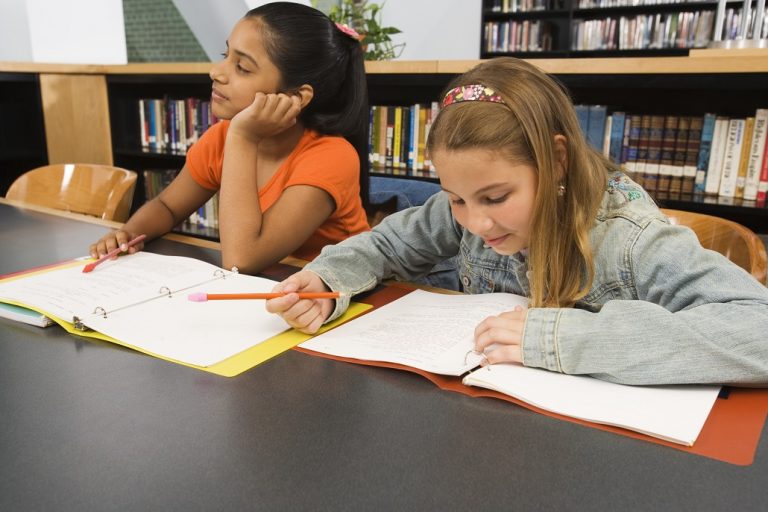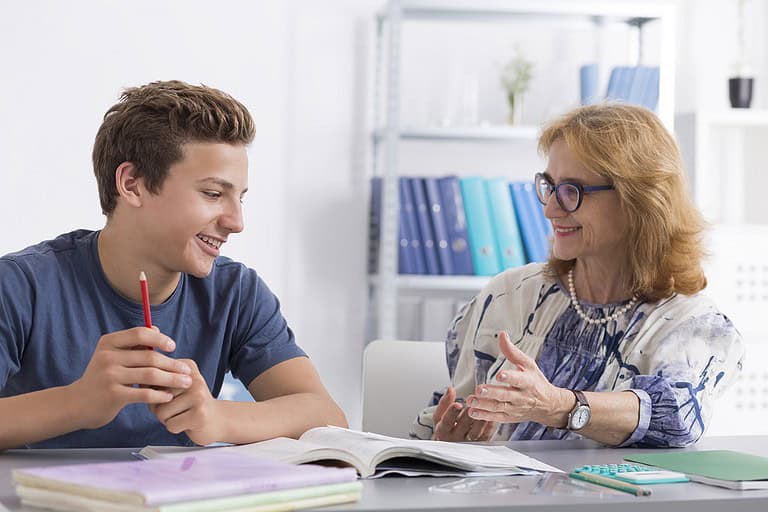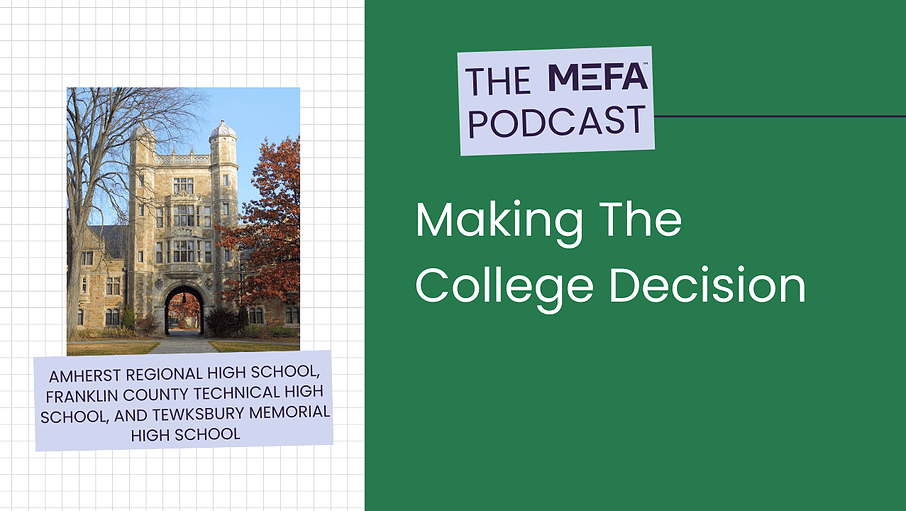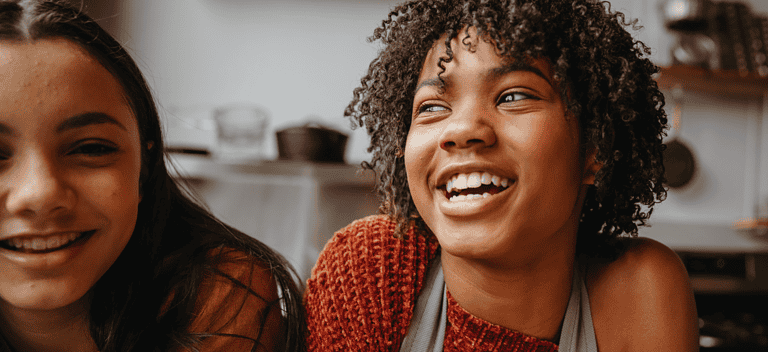

Resources Mentioned in this Episode
Please note that this transcript was auto-generated. We apologize for any minor errors in spelling or grammar.
Jonathan Hughes: Every spring students all over the country get their college acceptance letters. You’ve seen the videos. And their financial aid letters. And by May 1st, students and families have to evaluate their acceptances and they make a choice. So we at MEFA thought it was worth it to hear from some students and some parents who have that choice to make.
How do they get to this point? How did a college wind up on their list in the first place? What are their attitudes, their expectations? How did they search for colleges during a pandemic? And most importantly, now that they have their acceptances and their financial aid offers, how are they going to make the decision where to attend? So let’s meet our students.
Gracie: Okay. Hi, I’m Gracie Rosenberg. I’m a senior at the Franklin County Technical School. And in my sophomore year, dual enrolled at Greenfield Community College. I am super into biology and that’s a career path I’m going to be following.
Mira: My name is Mira. I’m 17 and I’m a senior at Amherst Regional High School. I’m particularly interested in political science, international relations, and history. But as of now, I have no set career that I’m looking to follow. Those are all things that I’d be really happy to be able to pursue.
Ruby: My name is Ruby Cain. I go to Amherst Regional High School. I really like project management. I’m very project oriented. Like my sophomore year, I planned this whole gala for a school band field trip that didn’t end up happening.
Jonathan Hughes: We’re also going to be hearing from Ruby’s mom, Lisa. And from Mira’s dad, Matthew.
Alexis: I’m Alexis Waterford. I go to Tewksbury Memorial High School, and I’m a senior. So I’m double majoring in business and political science. I’m doing a pre-law track. I think I’m either going to go to grad school or law school after I graduate.
Jonathan Hughes: When did you start your college search and what would land to college on your list?
Ruby: I really wanted to go to Florida Southern for a while in ninth grade because they had the largest collection of Frank Lloyd Wright buildings in the nation.
Alexis: I think around freshman year I started doing research on colleges. So I was definitely one of the earlier ones out of all my friends. When I was probably about 10 or 11, my aunts graduated college. They went to Worcester State. They liked it. My mom went to BU. And she loved it.
Mira: It kind of began when my brother was doing his college search as well. He’s two years older than me, so I saw him go through that process. I was able to go on some college tours with him. I was able to start looking at what kinds of schools I would be interested in, you know, like liberal arts schools or more research-based schools and things like that.
Gracie: I’m very career driven. I want to go above and beyond, the best academic experience I can. When I was, you know, a couple years into the tech school, I started figuring out I wanted to do those like advanced academics and kind of push myself as, as far as I could.
Ruby: In October, my junior year, wasn’t really buckled down. We had my GPA and then my assumed SAT® scores, and we put them in. I knew the two things, other than that, was in a city and bigger than 2,000 and less than like 12,000. My role was city over 3 million people. And that’s what we kind of started with.
Mira: I did want to have a defined campus. Some schools were a very spread out campus where there’s no specific designated area were less appealing to me. You know, not a school that’s too large for me, where I wouldn’t be getting as much one-on-one support that I would like as a student.
Gracie: Something that I would love to do is go to like a smaller college. I really got the small college feel with GCC and I’ve really kind of fallen in love with that.
Alexis: I kind of knew that I wanted a bigger school and more of a campus environment rather than like the city.
Jonathan Hughes: Now these students were juniors during the COVID pandemic and lockdown, and they found their chances for visiting college campuses limited at first. But there were other ways to tour.
Lisa: We visited online tours. You could just sign up with any college you wanted, from 5:00 to 6:00 you could visit their school. They have students, they had admissions directors. They’d show you the campus. Talk about what they do. And during the pandemic, we were really bored and this provided a way to keep eyes on the prize, like keep motivated and also just go on vacation or go somewhere else when we were stuck at home.
So we visited 30 I’d say.
Ruby: Around 3 to 2 a week for a solid three months.
Lisa: Yeah, we did .
Jonathan Hughes: Not that there weren’t some drawbacks. Here’s Mira.
Mira: I was able to do some online tours and online Q and A sessions, but I will say that those did not really compare at all. Many of the tours were clicking through photos of campus or laggy zoom call, trying to keep up with the tour guide on campus. So it did lose a lot of the energy that you have in an on-campus tour.
Alexis: There was a lot of research I did through each college’s website. With the University of Carolina, I was on a real tour. That was really useful, the tour guide was so nice. It’s one of their own students. She did a really good job. She was really engaging the whole time, which I think was really good. Another
Jonathan Hughes: Another college tour was not as successful.
Alexis: I got there when the tour started and they were like, oh, we don’t have room for you, but here’s a map and you can walk around and there’s like little blurbs. It’s a huge school, so I’m walking around and I’m looking at all these buildings. One thing that was a big thing was I couldn’t go to a lot of buildings because of COVID.
Mira: Over the summer, as campuses began to open up to the public more, I was able to take a few tours. And I think that that is something that’s really important for me is to be able to get a sense of how could I fit in on this campus?
There are some schools where I’ve definitely seen that it’s just not the right environment for me. A few of the schools that I’m looking at now, like Con College or Pomona, those have had very lively campuses where I could see myself there. It really sets in that that really could be you as another student on that campus.
Jonathan Hughes: How many colleges did you apply to?
Ruby: 8, which was too many. I wish I applied to five.
Mira: I applied to 14 schools.
All students together: GW, NC State, Salve Regina, Haverford, Loyola Chicago, Northeastern, SMU, Skidmore, the University of Tampa, the University of Miami, University of San Francisco, University of San Diego, U Miami, Penn State University, Carlton, Clemson, the University of Alabama. And there’s one more that I’m forgetting.
Jonathan Hughes: It was cost a factor when compiling your college list?
Ruby: We did have some schools still on our list before we got to the final eight. Part of the choice there became financial. A perfect example of this is Emory in Atlanta, which was a choice that we were thinking about.
You had a very small chance of getting any merit aid. And we knew right off the bat that, that wasn’t going to work for us. There were a number of schools that came off the list because we knew right away, they weren’t going to give merit aid.
Mira: I did apply to as many schools as I could, as I felt comfortable doing. But when I’m looking at them now, some of them do better financial aid packages than others, and that boosted them in rankings.
Jonathan Hughes: There’s a lot of colleges, a lot of applications. Was there ever a time when you got overwhelmed?
Ruby: Probably when writing the college essay.
Jonathan Hughes: Writing the college essay was stressful?
Ruby: The Common App essay, no. The supplementals towards the end, I was burnt out.
Mira: It was definitely a lot of writing and a stressful winter break. A lot of essays were similar to each other. So that was good for being able to base them off of one another.
Jonathan Hughes: I was going to ask you, I mean, how long really, where you working on all this stuff?
Mira: So I was working intermittently and then the last couple of weeks, I wrote out a very detailed schedule of how many essays I needed to do every day, whether it was drafting, editing or submitting them or having other people look at them as well.
Jonathan Hughes: Who did you have read essays for you?
Mira: Mainly my parents. We were all home for break. Might as well take advantage of that opportunity.
Alexis: They got to the point where at college had asked me your future plans, like what motivated you to get here? And then another school would be like, what about your future plans excites you most?
I can’t answer the same question one more time. So many questions were just spin offs of another one. I’ve written this before, especially with Penn State. I applied to their honors college and to do that, it requires like nine essays alone. It was a lot.
Jonathan Hughes: Did you apply for outside scholarships?
Ruby: I applied to local scholarships. I’m still applying. My college counselor publishes a book of all the locals scholarships.
Alexis: That was a whole other thing of essays. And again, I was like, I’ve written this before.
Mira: I was really mainly looking at scholarships where I knew that I already had some solid essays I could work from to try for those scholarship applications. I applied mostly to local scholarships because the school provided a scholarship packet for students to have access to. I would go through and highlight the scholarships that I knew that I wanted to apply to. And somewhere I could match with the interests.
Alexis: My guidance center has a pamphlet of all the scholarships, the day that they are released, and then the date that it’s due. And I read through all of them and I wasn’t eligible for all of them, but all the ones I was eligible for, I grabbed. A lot of them were pretty much local ones.
Gracie: I made an account on the MEFA website and I’ve basically just been using that as recommended by my guidance counselor, just search for a bunch of like local scholarships. That has been like the only place that I’ve been able to find, like really local scholarships, which has been cool.
Jonathan Hughes: Now with applications in and scholarships applied for, it’s time to turn our attention to the other side of this process. That’s right. The financial aid process. Let’s hear from Mira’s dad.
Matthew: I’m Matthew and I am a parent of a high school senior at Amherst Regional High School.
Jonathan Hughes: How would you describe the financial aid process?
Matthew: It was not fun. The FAFSA form was relatively straightforward. The CSS Profile®, there were individual questions for some of the schools, and there were individual forms that some of the schools had as well. Sometimes they wanted you to file something separately that would have been included with the FAFSA anyway. And so it was a little bit of a headache.
Jonathan Hughes: Okay. Listen to this. He’s about to say something really important.
Matthew: Getting additional help, I didn’t find it problematic to call the colleges. I know that there’s a general expectation that the student will have the interface with the colleges for most matters relating to admissions. That is not the case for financial aid. And I felt very comfortable calling a couple of the offices saying, what exactly are you looking for?
When do we need to have this in? And is it a problem if we don’t have that information yet? And so it was helpful for me to know that that’s a point where I can step in. We’re going to be working with Mira to make sure that the payments are made. It’s important for parents to feel comfortable reaching out and asking questions during the process of applying for financial aid.
Jonathan Hughes: It is expected that parents drive the financial aid process more than students. However, sometimes.
Mira: On October 1st, we’re filling out the FAFSA. And I sat and watched my dad fill out the FAFSA and it was really boring.
Lisa: We had a tax form from the previous year and it was easy to plug in.
And even though we felt that we weren’t going to get financial aid from these schools based on need, it was critical for merit aid that we file a FAFSA. And we will do so every year. And also for loans. Unsubsidized loans will come our way. If we didn’t file it, we couldn’t get those. So it’s critical for everybody to fill that out. And it’s a pain, but it’s not that bad.
Jonathan Hughes: Okay. Financial aid talk is. Now let’s get to the good stuff. What was the first acceptance that came through? And what was it like?
Mira: That was the UMass Amherst Honors College. That was exciting for me. Less exciting for me is being very close to home. I was excited about it, especially it being my first acceptance. So it did kind of set in, oh, this is real. I’m really going to be leaving and going to college.
Alexis: The University of Alabama was the first school that I applied to. They’re rolling. I heard back the first week of October from my first college. And obviously I still have two to hear back from, but I would say a lot were between December and March.
Jonathan Hughes: Were you accepted?
Alexis: Yes I was. At first it was like a package, but it looked like it was like a promotional package. Like it didn’t look like it would be an acceptance letter. And I was at work and my mom sent me a picture of it. I still had two hours left in my shift and I was like, why would you do this to me? So as soon as I came home, I was like, I need to open it.
And so when I ripped it open. I was like, it’s not junk mail. I was like, I got in.
Jonathan Hughes: And have you received responses from all the colleges?
Ruby: All except for two. Some of them were deferrals. University of San Francisco and NC State. Like those were kind of my top two of the acceptances I’ve heard back from.
Jonathan Hughes: So NC State is your top choice right now?
Ruby: Yeah
Jonathan Hughes: Oh, and you got in?
Ruby: Yeah. If you wanted a small school, that’s not NC state. There’s 27,000 students. But the school of textiles only had 800 students.
Jonathan Hughes: The school of textiles?
Ruby: It’s the only one in the nation.
Jonathan Hughes: Tell me about it.
Ruby: Oh, I think it’s like the coolest thing ever.
Jonathan Hughes: So was cost a factor in determining where you decide to attend?
Ruby: It is such a huge financial decision and yes, I am paying for it. But we all have to be aware that it’s a choice for the whole family, because it’s such a big amount of money. Just
Matthew: Just like buying a house is a big decision, going to college is the same kind of cost.
Jonathan Hughes: Are you concerned about student loan debt?
Ruby: Yeah. From people we know, I understood the implication of taking loans out, going into $60,000 of debt at 22. Millennials put out a lot of content about how much debt they went into to go to college. And instead of like being scared, I was like well that’s just not going to be me.
Alexis: At first I was naive and did not realize the cost of college and how student debt is really a thing.
And how long you’ll be paying it off, especially depending on like the job you get right out of college. Clemson was my top school for like the longest time. And at first I was like, no matter what, like, no matter what I get offered from other schools, they don’t give me any money. That’s where I’m going if I get in. Like, that’s like my dream school.
And then I started getting scholarships and packages from other schools, and I sat down and talked to my parents. They were like, you could be going to like a really good school that isn’t Clemson, but it’s the same degree or has everything that you want for a lot cheaper. As I got accepted more schools or rejected for more schools, and I saw the types of scholarships, not even that I was getting, but other kids were getting, kind of put it more in perspective. You don’t need to go to a really expensive school to get a really good education.
Mira: Yeah, there are definitely some schools I’ve not been considering as much and I’ve seen, oh, they’re going to give me this much money. Maybe I’ll think about it a little bit more.
Jonathan Hughes: Did you find the financial aid offers to be difficult to compare with one another?
Ruby: Big graphics, lots of explanations, a zoom call, you could hop on to.
Alexis: And so the only thing that would come up on mine, like besides like additional scholarships, is just like the $5,000 student loan, which I didn’t realize was a loan.
I was like, oh my God, I get $5,000 off at every school. And my parents were like, no, it’s a student loan. There’s still interest. You still have to pay that back. And I was like, oh, never mind.
Mira: A thing that’s been helpful for me is the schools I’ve been accepted to have been sending packages. And in those packages, often there’s an envelope where it has a detailed listing of your costs, the general cost of tuition, and then the financial aid offer, and then the scholarship or grant money that you’ve been given. And then, you know, what it would be if you were to work. That has been actually very easy to understand.
A little bit more difficult for me personally, to be able to navigate the online stuff. Very hard to find portals. A lot of them are great. You can look up, etcetera school portal, click on the link, put in your password. That’s great.
Some schools you have to check your email where it’s telling you to check another email that they sent like four months ago. And that’s the one that’ll have like a link that will have a link to your portal. And so those are the difficult ones.
Jonathan Hughes: Okay. So you got your acceptances, you got your financial aid offers. Where are you considering?
Mira: My top choice school as of now is Pomona. I’m considering that, first wave Haverford as well.
Jonathan Hughes: And so how are you going to make the decision?
Mira: I’m visiting both schools. So next weekend I’ll be going to visit Pomona. And then I believe two weeks after that I am going to be going to visit Haverford as well.
Jonathan Hughes: Pretty close to the deadline, May 1st?
Mira: Yes, very.
Gracie: What I’m planning to do after I graduate high school is have one more semester at GCC. That way I’ll be able to get an associate’s degree and I can use that to do Mass Transfer. So I’m sort of in the stage of visiting places right now, and most of them are the state schools and universities.
UMass Amherst is definitely up there. Cause those will be the places where I’ll be able to get Mass Transfer and some other scholarships. But I also realized that I have a good amount of savings saved up. I’ll only have two years for a bachelor’s. I might be able to afford going somewhere, like I’ve checked out some colleges in Boston that I like, some private colleges. I might be able to afford that.
Jonathan Hughes: And by the time we talked to Alexis, she had actually made her decision.
Alexis: I got waitlisted at my top school. The Clemson decisions came out and I was like, oh my God. So I get it. I open it, instant tears. I was so upset that I was waitlisted. I don’t know what, like I could have done. That was my school. I was like, I’m going there regardless of money.
And then when I got waitlisted there, I was like, well, let’s look at my six options. And then some of my schools came close in price and then a lot of the schools were similar in like the type of school that they were. And it was what I wanted to then that was kind of like how I made my decision.
Jonathan Hughes: Where are you going?
Alexis: The university of Alabama.
Jonathan Hughes: Oh, that’s great.
Alexis: Yes. I’m so excited.
Jonathan Hughes: Well, congratulations. What was it that made you go to the University of Alabama?
Alexis: So there’s a few things. I will be in their honors program, starting in the fall. And I can make myself a double major. Also they have an MBA pathway and then also really big school, a lot warmer. And it was the cheapest school for me to go to the scholarship that I got.
Jonathan Hughes: I was going to ask you if cost was a factor in that decision.
Alexis: Yes, it definitely was. I got the biggest scholarship to go there.
Jonathan Hughes: And how about your parents? How do they feel?
Alexis: My dad is so excited. Alabama is his favorite college football team. When I got in, he was like, you have to go here. As it started getting closer to my decision, like I kept talking about it more. He was like, my dream is coming true.
And then my mom, I think she’s really, really happy for me, but, you know, I think her telling me that she wants me to go far away. And then now me actually going far away are two very different things. So both my parents cried the day I committed, but for different reasons.
Jonathan Hughes: So what’s your advice then for other students?
Alexis: I say, apply to like a big range of schools. You should apply to one or two harder schools. It’s good to push yourself because you never know what can happen. One thing I learned from this admissions process is people might tell you that you’re going to get in and you might have all of the boxes checked off, but you can still get rejected.
And I think it’s kind of hard being like, you just didn’t work hard enough, but a lot of the time it’s just that you did work hard enough, but weren’t like the best fit.
Jonathan Hughes: That reminded me of something I heard me Mira say.
Mira: It is difficult to try and condense all of who you are into a few boxes. Schools are not going to be able to understand all of you based off of a few written responses about yourself.
It’s just asking you to list your achievements and that sometimes can feel really stressful. That list, or that piece of paper, is not who you are. Try and put as much into all your essays and into all your responses. At the end of the day, it’s not defining you. And so acceptances and rejections, they also don’t define you.
Jonathan Hughes: About two weeks after Ruby and I spoke, I got an email from her saying that she’s made her decision and she’s deposited at NC State. So we set up a time to chat.
So congratulations. So, when did you make that decision?
Ruby: Oh, that’s a good question. I made it after I got wait-listed from George Washington. I think it was March 30th. And I was like, well, that was the only other school I was kind of considering. And then I decided it was a good time to do it.
Jonathan Hughes: Okay. Because it sounded like when we talked before, like you were kind of leaning towards NC State.
Ruby: Well was that before or after I visited.
Jonathan Hughes: Oh, good question. Why, what happened there?
Ruby: Well, I visited and my biggest fear was how big it was. And like, everybody was so nice and the program was just a really good fit. It was hands-on, career-oriented, and there’s an intellectual aspect to it, and there was design.
I really liked it and I felt no other school was offering that type of program.
Jonathan Hughes: This is the textile program?
Ruby: Yeah. I only applied to business schools and a couple communication schools. And I applied to the textile program because it was a small school and NC state. But I thought it’s the best fit. Career oriented and hands-on, which other programs weren’t.
Jonathan Hughes: And you had a positive experience on your visit?
Ruby: I went and everything lined up. Students were really great. Their motto is think and do, and that’s something that’s really important to me is getting an idea and acting on it.
Jonathan Hughes: So what do you have to do from then on, and how did you actually accept?
Ruby: I put down a deposit and after that, you have to do a whole checklist. Apply for housing, pick a meal plan, set up an NC state email, set up the payment plan, take tests.
Jonathan Hughes: What was the reaction? Your mom was here last when we talked. So is she happy?
Ruby: She’s really glad because she’s part of the NC State wolf pack, which is their slogan. It’s really a family community. I think that’s why she likes her. And she’s happy because I’m closer to home than I would have been, because my second choice was San Francisco.
Jonathan Hughes: Congratulations again and best of luck.
Ruby: Thank you. Send the podcast me when you’re done.
Jonathan Hughes: Before we go, why don’t we give the final word to Mira’s dad, Matthew Charity. It seems like he had something on his mind, something important.
Matthew: Yeah. I’ve been very well aware of MEFA for some years. When our son was in 10th grade, so that’s four years ago, is when we went to the first program at Amherst Regional High School that talked a little bit about financial aid.
And we were told, here are some resources you should look at. MEFA has a great set of resources. And so I have taken advantage of the website over the last four years as part of my understanding of the processes as we move forward.
Jonathan Hughes: Thank you to Mira, Matthew, Ruby, and Lisa, Gracie and Alexis. I also want to thank the high school counselors that connected me with our amazing students, Daniel Kennan from Tewkesbury Memorial High School, Deidre Cuffee-Gray from Amherst Regional High School, and Anne McCarthy and Taryn Canfield from Franklin County Technical School. I want to take this opportunity to point out a common thread among these students.
Gracie: I mean, I’ve always been someone who’s like very academically oriented. I’m very like career driven.
Alexis: My history teacher, who is my NHS adviser, and I’m vice president of NHS.
Gracie: Go above and beyond with those things and kind of get the best like academic experience I can.
Mira: A lot of it is that I really just did want to get the most I could out of my education. The course that I could take honors, I took the honors, higher level AP classes.
Jonathan Hughes: Now that wasn’t me at 17, and it’s probably not most students. But the good news is no matter the type of student you may be, MEFA is here with resources to help. So if you have any questions, please reach out to us at [email protected] or call us at 1-800-449-MEFA.
Or you can reach us on social media, on Facebook at MEFAMA, on Twitter at @mefatweets, and on Instagram at mefa_ma. Special thanks to Shaun Connolly and Jennifer Bento-Pinyoun. Once again, this has been the MEFA Podcast. My name is Jonathan Hughes. Thanks.













